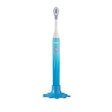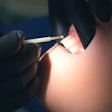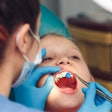Despite improvements, only 42.8% of Pennsylvania kids on Medicaid saw a dentist in 2009, according to a report by the University of Pittsburgh. The authors called on the state to keep increasing reimbursement for dentists and consider expanding dental services by nondentists, including physicians and midlevel dental practitioners.
Medicaid covered more than 1 million, or 35.5%, of all children in Pennsylvania in 2009. In 2008, the program spent about $109 per enrolled child. That's relatively low compared to the $252 national average in 2005. In some parts of Pennsylvania, Medicaid recipients are required to enroll in managed care organizations, while the enrollment is voluntary in other areas.
According to the report, Pennsylvania dentists may be reluctant to participate in Medical Assistance, the state's Medicaid program, because of reimbursement rates, which are about 53.2% of regular dental service fees. Even though the state increased reimbursement rates as much as 76% for some procedures between 2005 and 2009, the state's rates fall below the national average Medicaid fees for dental services of 60.5%.
The state has initiated other efforts as well, including expansion of a transportation program for Medicaid patients and a holistic effort to establish dental homes for children and teenagers. These efforts have had some success, depending on the provider administering the plans. For example, HealthPartners increased the proportion of children age 4 to 21 with a dental visit in the past year from about 35% to 45%. At AmeriChoice, on the other hand, the rate went from about 39% to 41%.
"We found that only 26% of practicing dentists in Pennsylvania were reimbursed by Medical Assistance in 2009," said Judith Lave, Ph.D., professor of health economics at the university. "Medical Assistance may need to re-examine reimbursement practices to ensure services are being appropriately covered. This could help encourage more dentists to participate in the program and improve access to care for low-income children."
She acknowledged that this could prove difficult because the state is facing budget cuts.
Lave, director of the university's Pennsylvania Medicaid Policy Center, and her co-author, Monica Costlow, J.D., said the state should consider expanding a program in which physicians and nurse practitioners provide fluoride varnish and other dental services to children younger than 4 years old.
They also mentioned the option of providing Medicaid reimbursement to expanded function dental assistants, who were licensed by the state Legislature in 2010 to polish crowns, apply fluoride varnish, and take impressions. And they note that other states have created oral health practitioner licenses and are considering adding licenses for advanced hygiene practitioners.
Copyright © 2010 DrBicuspid.com



















